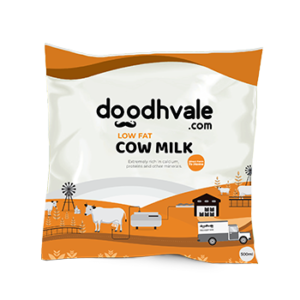Cow milk lite, also known as low-fat or reduced-fat milk, is a popular choice for those looking to enjoy the nutritional benefits of milk without the higher fat and calorie content of whole milk. This blog will explore what cow milk lite is, its nutritional profile, health benefits, and how it compares to other types of milk.
What is Cow Milk Lite?
Definition:
- Cow milk lite refers to milk that has had a portion of its fat content removed. Typically, it contains about 1-2% fat, compared to the 3.5% fat content found in whole milk. This reduction in fat makes it a lighter option while still providing essential nutrients.
Production Process:
- The production of cow milk lite involves centrifugation, where milk is spun at high speeds to separate the cream (fat) from the milk. The remaining milk is then homogenized and pasteurized, ensuring uniform consistency and safety for consumption.
Nutritional Profile
1. Calories:
- Cow milk lite contains fewer calories than whole milk. One cup (240 ml) of 1% milk has about 100 calories, while 2% milk has around 120 calories per cup.
2. Fat:
- The fat content in cow milk lite is significantly reduced, making it a healthier option for those looking to lower their fat intake. One cup of 1% milk contains approximately 2.5 grams of fat, while 2% milk has about 5 grams.
3. Protein:
- Cow milk lite provides a good source of high-quality protein, essential for muscle repair, growth, and overall body function. One cup typically contains around 8 grams of protein.
4. Calcium:
- Cow milk lite remains rich in calcium, crucial for maintaining strong bones and teeth. One cup provides about 300 mg of calcium, which is about 30% of the recommended daily intake.
5. Vitamins:
- Cow milk lite retains essential vitamins such as vitamin D, vitamin B12, and riboflavin (B2). Vitamin D is particularly important for calcium absorption, while B vitamins support energy metabolism and red blood cell formation.
6. Minerals:
- In addition to calcium, cow milk lite provides other important minerals like potassium, phosphorus, and magnesium, which support various bodily functions, including heart health and bone strength.
7. Carbohydrates:
- Cow milk lite contains about 12 grams of carbohydrates per cup, primarily in the form of lactose, a natural sugar found in milk.
Health Benefits
1. Weight Management:
- Due to its lower calorie and fat content, cow milk lite is an excellent choice for those looking to manage their weight. It allows individuals to enjoy the nutritional benefits of milk without the added calories from fat.
2. Heart Health:
- Reducing saturated fat intake is important for heart health. Cow milk lite contains less saturated fat compared to whole milk, which can help maintain healthy cholesterol levels and reduce the risk of heart disease.
3. Bone Health:
- The high calcium and vitamin D content in cow milk lite supports bone health and helps prevent conditions like osteoporosis. It is especially beneficial for children, adolescents, and postmenopausal women who have higher calcium needs.
4. Muscle Maintenance:
- The protein in cow milk lite aids in muscle repair and growth, making it a good option for athletes and physically active individuals.
5. Hydration:
- Milk is about 90% water, making cow milk lite a hydrating beverage. It also provides electrolytes like potassium and magnesium, which are important for maintaining fluid balance and preventing dehydration.
Comparison to Other Types of Milk
1. Whole Milk:
- Whole milk contains about 3.5% fat and 150 calories per cup. While it is richer and creamier, it also has more saturated fat and calories compared to cow milk lite.
2. Fat-Free Milk (Skim Milk):
- Fat-free milk has less than 0.5% fat and about 80-90 calories per cup. It is the lightest option in terms of fat and calories but still provides essential nutrients like protein, calcium, and vitamins.
3. Plant-Based Milks:
- Almond, soy, oat, and other plant-based milks are popular alternatives. They vary in nutritional content, with some fortified to match the calcium and vitamin levels of cow’s milk. Cow milk lite generally provides more protein than most plant-based milks, except soy milk.
Culinary Uses
1. Beverages:
- Cow milk lite can be consumed on its own or used in beverages like tea, coffee, and smoothies, providing a lower-calorie option.
2. Cooking and Baking:
- It can be used in recipes that call for milk, including soups, sauces, and baked goods, without altering the taste significantly.
3. Dairy Products:
- Cow milk lite can be used to make low-fat versions of yogurt, cheese, and other dairy products, offering a healthier alternative.
Conclusion
Cow milk lite is a nutritious and versatile option for those looking to reduce their fat and calorie intake while still benefiting from the essential nutrients found in milk. Its high protein, calcium, and vitamin content make it a valuable addition to a balanced diet. Whether you are managing your weight, focusing on heart health, or simply looking for a hydrating and nutrient-rich beverage, cow milk lite can be a beneficial choice.



